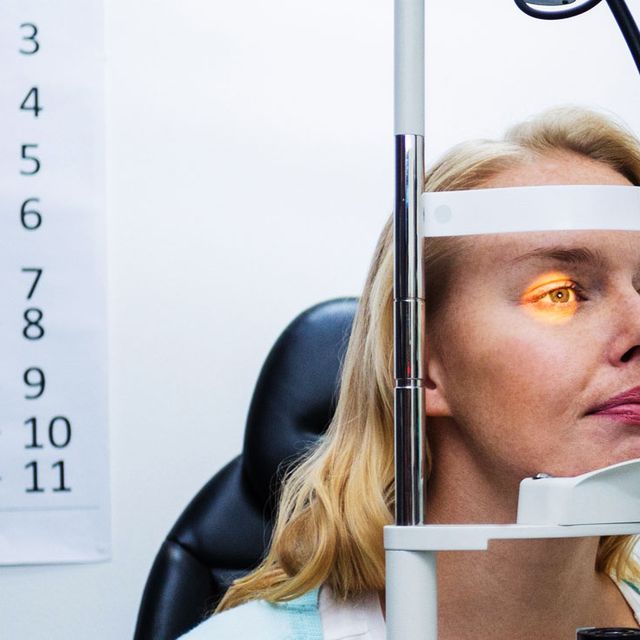
Blog

Eye emergencies are both common and uncommon conditions that require immediate medical attention. These situations can occur due to various reasons such as accidents, underlying health conditions, or age-related factors. It is crucial to understand that eye emergencies can lead to permanent damage to the eye or even complete loss of vision if not treated promptly and effectively.
Understanding the Importance of Eye Health
Eye health is a critical aspect of overall wellbeing. Beyond enabling us to perceive the world around us, our eyes also serve as windows to our body's health. Diseases like diabetes, hypertension, and even certain cancers can be detected through eye examinations. Therefore, maintaining good eye health is not just about preserving vision, but also about safeguarding our general health.
Despite its importance, eye health often tends to be overlooked. People tend to neglect regular eye check-ups, ignore minor eye discomforts, and fail to protect their eyes from harmful elements. This neglect can lead to various eye conditions and emergencies.
Common Eye Emergencies and Conditions
There are several common eye emergencies and conditions that everyone should be aware of. This awareness can help to identify the problem early and seek timely medical attention. It is important to note that this section provides a general overview, but it is not exhaustive. Always consult a healthcare provider for accurate information and treatment.
One of the most common eye emergencies is a foreign body in the eye. This can occur when dust, debris, or a foreign object enters the eye and causes discomfort, redness, and sometimes, severe pain. If left untreated, it can lead to infection or scratches to the cornea, which can cause permanent damage to the eye.
Another common eye emergency is a blow to the eye, which can lead to a condition known as traumatic iritis. This condition occurs when the iris, the colored part of the eye, gets inflamed due to injury. Symptoms include pain, blurred vision, and sensitivity to light.
Chemical burns, retinal detachment, optic neuritis, and acute angle-closure glaucoma are other common eye emergencies that require immediate medical attention. Each of these conditions has distinct symptoms and requires different treatments.
Identifying the Signs and Symptoms of Eye Emergencies
Recognizing the signs and symptoms of common eye emergencies is crucial for timely intervention. While the symptoms can vary depending on the specific condition, there are some general signs that you should look out for.
Pain in the eye is a common symptom of many eye emergencies. The severity of the pain can vary from a dull ache to severe throbbing. It is essential to seek immediate medical attention if you experience sudden, unexplained, or severe eye pain.
Changes in vision, such as blurred vision, double vision, or loss of vision, are also significant symptoms. These changes can occur gradually or suddenly. In the case of sudden vision loss or significant changes, it is crucial to seek immediate medical attention.
Redness, swelling, or discharge from the eye are other signs of potential eye emergencies. These symptoms could indicate an infection or inflammation that requires medical attention.
When to See an Optometrist
Knowing when to see an optometrist can help prevent serious eye problems and ensure optimal eye health. If you are experiencing any of the signs and symptoms, it is critical to seek professional help immediately. In many cases, early detection and treatment can prevent permanent damage and preserve vision.
Even if you are not experiencing any symptoms, regular visits to the optometrist are crucial. Regular eye examinations can help detect underlying conditions that may not present any noticeable symptoms. By catching these issues early, you can prevent them from progressing into serious problems.
How to Prevent Eye Emergencies
Preventing eye emergencies mainly involves taking care of your eyes and protecting them from harm. Here are a few tips on how to prevent eye emergencies:
1. Always wear protective eyewear when engaging in activities that could potentially harm your eyes. This includes activities like sports, gardening, or handling chemicals.
2. Avoid rubbing your eyes, especially if you feel something in your eye. Instead, try blinking or rinsing your eye with clean water.
3. Maintain a healthy diet rich in vitamins A and C, which are essential for eye health.
4. Keep your living and working areas well-lit to avoid straining your eyes.
5. Take regular breaks from screens to prevent digital eye strain.
By following these tips, you can significantly reduce your risk of experiencing an eye emergency.
Safeguarding Your Vision and Eye Health
Eye emergencies can be frightening and potentially devastating. However, with knowledge and vigilance, we can identify these emergencies early, seek timely medical help, and prevent serious consequences. It is crucial to remember that maintaining good eye health is not just about preventing emergencies but also about ensuring our overall wellbeing.
For more information on eye emergencies and how to handle them, contact Super Optical Express at our office in Gainesville, Florida. Call 352-702-9700 to discuss any questions with our team of professionals or to schedule an appointment today.



